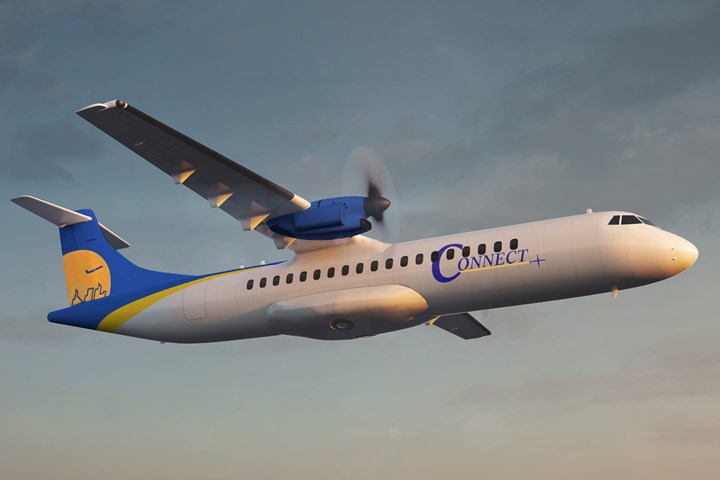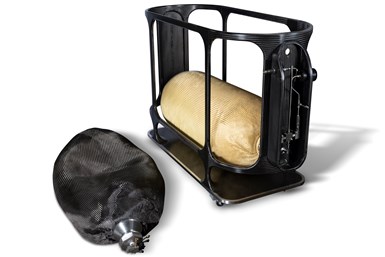Connect Airlines orders Universal Hydrogen conversion of 75 ATR regional aircraft
On path to becoming the world’s first zero-emission airline, Connect Airlines sees demand for 800 such H2-powered regional aircraft over the next decade.

Photo Credit: Connect Airlines
“We are building Connect Airlines from the ground up as a smarter, more sustainable travel option for North American travelers,” John Thomas, CEO, Connect Airlines (Boston, Mass., U.S.), says. “We have committed to being the world’s first true zero-emission airline and the only way to accomplish this in the near term is with hydrogen.” The airline has placed a firm order to convert 75 ATR 72-600 regional aircraft to hydrogen powertrains, with purchase rights for an additional 25 conversions. Deliveries will start in 2025.
“This order places Connect firmly in the vanguard of the march to get aviation on a path to meeting Paris Agreement emissions targets,” Paul Eremenko, co-founder and CEO of Universal Hydrogen (Los Angeles, Calif., U.S.), adds. “This march will very soon need to turn into a sprint if the industry has any hope of decarbonizing in time without having to curtail the growth in passenger volumes. We will need to convert most of the regional fleet in the 2020s and ensure that the new narrowbody aircraft built in the 2030s are hydrogen-powered — there is no other way to get there.”
Universal Hydrogen aims to provide the infrastructure needed for hydrogen-powered aviation. As reported by CW in 2020, Universal Hydrogen is developing modular storage capsules using twin 850-bar pressure vessels in a composite frame. The pressure vessels are made with a multi-layered, weight-optimized, continuous carbon braided preform over a low permeability membrane for high-pressure storage of hydrogen gas; or two metal tanks, insulated but not actively cooled, to transport liquid hydrogen. The modules have been sized to provide 400 nautical miles of range with high-pressure gas and 550 nautical miles with liquid hydrogen. Universal Hydrogen will transport the modular capsules over the existing freight network from green production sites directly to the airplane anywhere in the world.
Universal Hydrogen claims its modular capsule technology eliminates the need for costly and lengthy airport infrastructure upgrades and aims to make nearly every airport in the world hydrogen ready. As part of this agreement, Universal Hydrogen says it will provide fuel services to the Connect fleet, enabling operating unit economics that are equivalent or better than those of hydrocarbon-powered ATR 72s from the first delivery in 2025.
“We see the partnership with Universal Hydrogen as the fastest path to zero-emission operation because they offer both an affordable retrofit solution for the existing airplane fleet, as well as a pragmatic approach to delivering hydrogen to any airport in our route network,” Thomas says. “With this technology and its economics, we see the demand growing to 800 new aircraft added to the regional fleet over the next decade.”
Related Content
-
Welding is not bonding
Discussion of the issues in our understanding of thermoplastic composite welded structures and certification of the latest materials and welding technologies for future airframes.
-
ASCEND program update: Designing next-gen, high-rate auto and aerospace composites
GKN Aerospace, McLaren Automotive and U.K.-based partners share goals and progress aiming at high-rate, Industry 4.0-enabled, sustainable materials and processes.
-
Combining multifunctional thermoplastic composites, additive manufacturing for next-gen airframe structures
The DOMMINIO project combines AFP with 3D printed gyroid cores, embedded SHM sensors and smart materials for induction-driven disassembly of parts at end of life.

















